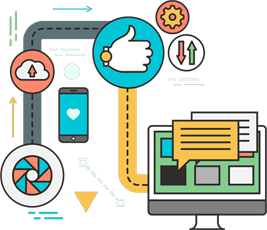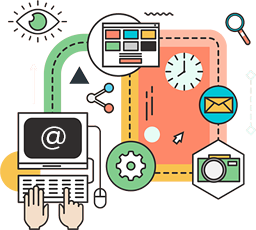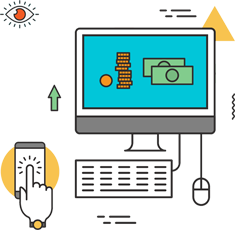Ready to take your online presence to the next level?
Full Services of Our Digital Agency

Static Website Design:
Static websites are basic and do not change content or layout based on user actions. They are typically informational and display the same information to every visitor

Dynamic Website Desing:
Dynamic websites are more interactive and can change content or respond to user input. They often include features like user accounts, forums, and content management systems.

Single Page Website
These websites consist of a single, long-scrolling page. They are great for presenting concise information or portfolios and often feature navigation that smoothly scrolls to different sections.

Multi-Page Website:
Multi-page websites have multiple interconnected pages, each dedicated to specific content or sections. They are commonly used for businesses with extensive services or products.

eCommerce Website:
eCommerce websites are designed for online shopping. They have features for product listings, shopping carts, secure payment gateways, and inventory management.

Portfolio Website:
These websites are used by individuals, artists, or professionals to showcase their work, such as photography, design, writing, or other creative endeavors.

Blog or Content Management System (CMS):
Blogs and CMS platforms allow users to easily publish and manage content. They often include features for categories, tags, and user interaction through comments.

Landing Page:
Landing pages are standalone pages created for specific marketing campaigns. They are designed to encourage a particular action, such as signing up for a newsletter or making a purchase.

Corporate Website:
Corporate websites are typically used by large organizations to present information about the company, its services, team, and contact details.

Educational or E-learning Website:
These websites facilitate online learning and may include features like course materials, quizzes, forums, and progress tracking.

Social Media Website:
Social media platforms like Facebook, Twitter, and LinkedIn are examples of complex websites designed for user-generated content, networking, and social interaction.

Nonprofit Website:
These websites serve public or nonprofit organizations, providing information about services, resources, and activities.

Personal Blog or Website:
Individuals use personal websites to share their thoughts, experiences, and interests. These can be informal or professional in nature.

Mobile-Optimized or Responsive Website:
These websites are designed to provide an optimal user experience on various devices, including desktops, tablets, and mobile phones.




